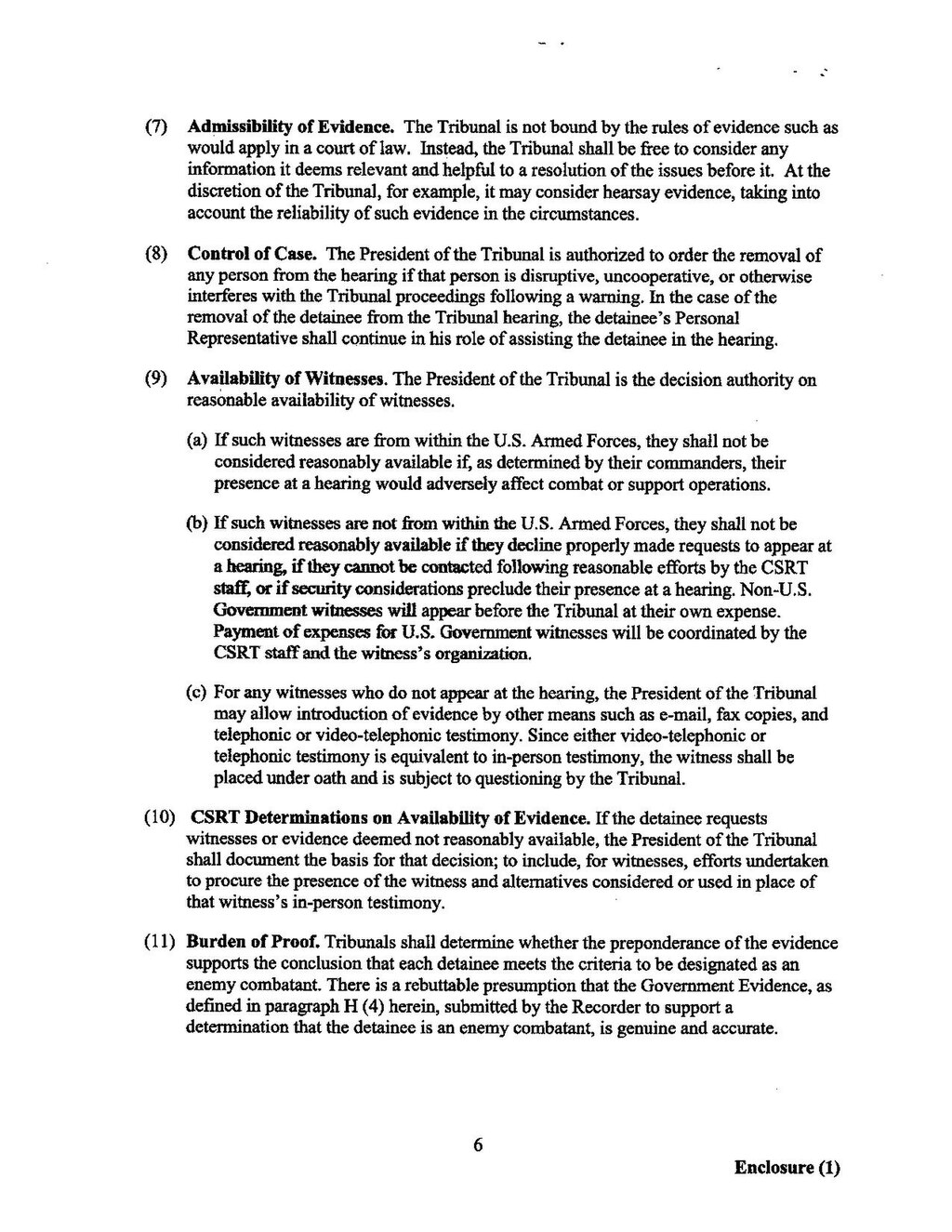- Admissibility of Evidence. The Tribunal is not bound by the rules of evidence such as would apply in a court of law. Instead, the Tribunal shall be free to consider any information it deems relevant and helpful to a resolution of the issues before it. At the discretion of the Tribunal, for example, it may consider hearsay evidence, taking into account the reliability of such evidence in the circumstances.
- Control of Case. The President of the Tribunal is authorized to order the removal of any person from the hearing if that person is disruptive, uncooperative, or otherwise interfere with the Tribunal proceedings following a warning. In the case of the removal of the detainee from the Tribunal hearing, the detainee’s Personal Representative shall continue in his role of assisting the detainee in the hearing.
- Availability of Witnesses. The President of the Tribunal is the decision authority on reasonable availability of witnesses.
- If such witnesses are form within the U. S. Armed Forces, they shall not be considered reasonably available if, as determined by their commanders, their presence at a hearing would adversely affect combat or support operations.
- If such witnesses are not from within the U. S. Armed Forces, they shall not be considered reasonably available if they decline properly made requests to appear at a hearing, if they cannot be contacted following reasonable efforts by the CSRT staff, or if security considerations preclude their presence at a hearing. Non-U. S. Government witnesses will appear before the Tribunal at their own expense. Payment of expenses for U. S. Government witnesses will be coordinated by the CSRT staff and the witness’s organization.
- For any witnesses who do not appear at the hearing, the President of the Tribunal may allow introduction of evidence by other means such as e-mail, fax copies, and telephonic or video-telephonic testimony. Since either video-telephonic or telephonic testimony is equivalent to in-person testimony, the witness shall be placed under oath and is subject to questioning by the Tribunal.
- CSRT Determinations on Availability of Evidence. If the detainee requests witnesses or evidence deemed not reasonably available, the President of the Tribunal shall document the basis for that decision; to include, for witnesses, efforts undertaken to procure the presence of the witness and alternatives considered or used in place of that witness’s in-person testimony.
- Burden of Proof. Tribunals shall determine whether the preponderance of the evidence supports the conclusion that each detainee meets the criteria to be designated as an enemy combatant. There is a rebuttable presumption the the Government Evidence, as defined in paragraph H(4) herein, submitted by the Recorder to support a determination that the detainee is an enemy combatant, is genuine and accurate.
6
Enclosure (1)
